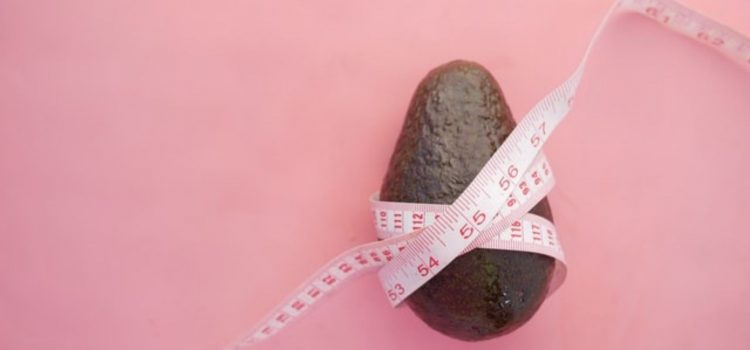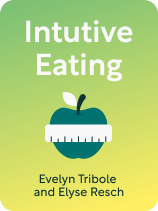

This article is an excerpt from the Shortform book guide to "Intuitive Eating" by Evelyn Tribole and Elyse Resch. Shortform has the world's best summaries and analyses of books you should be reading.
Like this article? Sign up for a free trial here.
What are the bad effects of diets? Are diets more damaging than they are helpful?
Intuitive Eating by Evelyn Tribole and Elyse Resch suggests that dieting does more harm than good. The pressure of dieting damages your relationship with food and can turn eating into a struggle.
Keep reading to learn about just four of the bad effects of diets that restrict your eating habits.
How Diets Damage Your Relationship With Food
The pressure to be thin motivates many of us to adopt diets that promise not only to control our weight and improve our health but also to increase our happiness. The underlying implication is that being lean makes us happier by positively affecting our body image, self-esteem, and how others perceive us.
(Shortform note: Some data supports the implication that, in Western societies, being lean offers benefits that can make people happier. Research demonstrates that those who fit societal beauty standards have clear advantages in life. Specifically, they’re more likely to get a job and receive higher pay, have more intelligent and high-earning partners, and have greater success negotiating loans. By enhancing both the way people perceive themselves and the way others perceive them, these benefits perpetuate the notion that being lean contributes to increased happiness and reinforce the pressure to conform.)
However, Tribole and Resch argue that succumbing to these pressures is often harmful to our physical health, body image, and self-esteem. Why does this happen? According to the authors, it’s because the pressure to adhere to diets gives rise to four bad effects of diets that damage our relationship with food. These effects make it challenging to sustain a healthy lifestyle or derive pleasure from what we eat:
- Diets perpetuate harmful body image beliefs.
- Diets increase the risk of weight gain.
- Diets trigger self-judgment and self-blame.
- Diets disrupt bodily awareness and nutritional needs.
Negative Effect #1: Diets Perpetuate a Harmful Body Image
Diets perpetuate a harmful body image by overemphasizing weight control. Tribole and Resch explain that those living in Western societies are bombarded with weight control advice and advertisements that reinforce the misconception that thinness is the ideal standard of health and beauty.
This pervasive exposure can cause you to overlook the diverse range of body shapes and sizes that naturally exist, making it difficult to accept and embrace the beauty of your unique body. As a result, you may have internalized the belief that you must be thin or toned to be healthy and happy. You also may have experienced pressure to conform to a specific body ideal—such as having a flat stomach.
This pressure may have led you to develop harmful beliefs that prioritize how you look at the expense of your overall well-being. For example, you may believe that you must severely restrict your food intake to attain “the perfect body,” resulting in nutritional deficiencies that compromise your mental and physical health.
(Shortform note: Research suggests that the prevalence of weight control advice and advertisements is worse in the age of targeted online advertising. For example, people with eating disorders report that online searches related to their eating disorder seem to prompt more advertisements for weight loss programs, apps, and intermittent fasting. While such advertising isn’t the sole cause of eating disorders, it does obstruct the recovery process for people facing weight-related challenges by reinforcing unrealistic body image ideals. To address this issue, some potential solutions include stricter regulation of weight loss ads, promoting body diversity in advertisements, providing opt-out options for targeted ads, and incorporating trigger warnings where appropriate.)
Negative Effect #2: Diets Increase the Risk of Weight Gain
The more you yield to the pressure to control your weight through dieting, the more likely you are to gain weight in the long term. According to Tribole and Resch, this is because diets create a state of deprivation that disrupts your body’s innate ability to maintain a healthy weight.
They explain that all diets restrict food intake, whether by limiting the types of food you eat, the amount of food you consume, or when you can consume food. Each time you restrict your food intake, your body detects a scarcity of food and interprets it as a threat to survival. In response, your body’s survival instinct, designed to safeguard energy reserves during times of famine, slows down your metabolism—meaning it stores more of what you eat as fat. Further, your body compels you to eat more by generating intense cravings that drive you to consume high-calorie foods.
As a result of these cravings, you may find yourself unable to stick to your diet and end up indulging in the very foods you tried to avoid. Or, after successfully completing your diet and achieving your weight goal, you might overeat the reintroduced foods to compensate for missing out on them. In both cases, it’s common to end up weighing more than you did before you started the diet.
For example, following a zero-carb diet triggers cravings for carb-heavy foods. The more you resist these cravings and deprive yourself, the stronger these cravings become. Each time you give in to these cravings, you’re likely to consume more carbs than you would normally eat or that your body needs, resulting in weight gain. Likewise, post-diet, the desire to make up for the carbs you missed out on during the restrictive phase may lead to overindulgence, causing you to consume more calories than your body requires.
Negative Effect #3: Diets Trigger Self-Judgment and Self-Blame
Though diets often cause weight gain by triggering cravings for forbidden foods, if you fail to control your weight through dieting, you’re more likely to judge and blame yourself rather than question the effectiveness of diets or the societal ideals of the perfect body.
According to Tribole and Resch, this tendency to judge and blame ourselves for a failed diet arises because our culture assigns moral judgments to body types or food choices. You’ve been influenced to associate a slim figure with not only health but also moral qualities and traits such as self-control and beauty. Similarly, diets categorize foods as “good” or “bad,” establishing a dichotomy that implies you’re “good” when you eat the allowed foods and “bad” when you consume the restricted foods. As a result, when you deviate from the prescribed “good” foods, you feel as if you’ve committed a transgression, which results in feelings of guilt, shame, or failure.
Negative Effect #4: Diets Disrupt Bodily Awareness and Nutritional Needs
Tribole and Resch argue that the combined effect of harmful body image, weight gain from cravings, self-judgment and self-blame disrupts your ability to listen to your body’s cues, preventing you from fulfilling its nutritional needs.
They explain that a negative body image and lack of self-acceptance can make you mistrust your body’s natural signals—because if your body is unacceptable, it can’t be trusted to provide accurate information about what it needs. This mistrust in your body’s signals may lead you to rely on rigid dietary guidelines that emphasize external measures, such as calorie counting or portion control, rather than internal measures such as hunger cues or energy levels.
However, following rigid dietary guidelines disrupts your body’s ability to provide reliable hunger and fullness signals by causing intense cravings for foods that your body doesn’t require, often resulting in episodes of overeating forbidden foods. This can reinforce your inclination to override your body’s cues because it’s telling you to eat foods that don’t support a “good” body image.
Simultaneously, the self-judgment and self-blame triggered by deviating from dietary guidelines add another layer of emotional distress about your eating choices. This emotional distress, combined with intense cravings, initiates another cycle of restrictive eating, further disconnecting you from accurately discerning and responding to your body’s nutritional needs.
As a result, you may find yourself consuming food that doesn’t satisfy you or meet your body’s requirements. This lack of attunement can lead to ongoing struggles with cravings, weight fluctuations, and an overall sense of dissatisfaction with your eating experiences.

———End of Preview———
Like what you just read? Read the rest of the world's best book summary and analysis of Evelyn Tribole and Elyse Resch's "Intuitive Eating" at Shortform.
Here's what you'll find in our full Intuitive Eating summary:
- Why eating is often associated with guilt, shame, and fear
- How diets damage your relationship with food
- Ways to cultivate a healthy relationship with food






